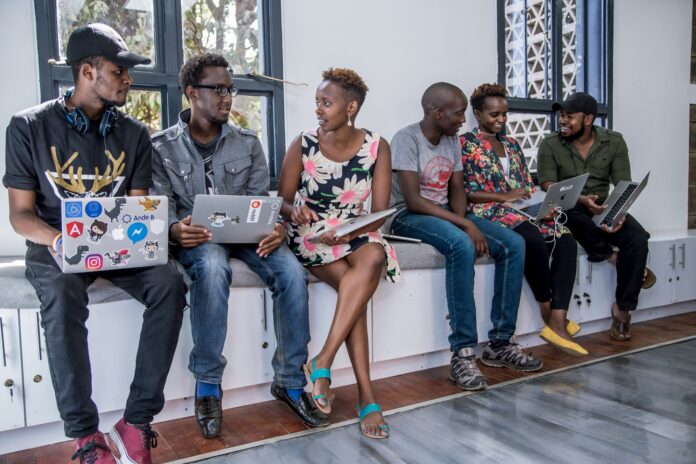For several months, it was the darling of everyone. Within seconds, Artificial Intelligence (AI) had impressed with its ability to perform complex tasks that take humans painstakingly long.
None was the talk of town than ChatGPT which is owned by OpenAI, a company co-founded by Twitter and Tesla billionaire Elon Musk and backed by Microsoft co-founder Bill Gates.
But these two backers are now expressing fear that the technological advancement is proceeding at a breakneck speed that may take the world on a perilous.
And they are not alone. Late in March, The Future for Life Institute, a thinktank, sparked a storm when it wrote a letter asking artificial intelligence companies to pause the training of powerful AI systems for at least six months citing profound risks to society and humanity through the proliferation of misinformation and the replacement of human workers by algorithms.
Profound risks
Other risks it said are posed by the use of AI include; bias perpetuated by the systems due to training algorithms with inaccurate and unrepresentative data that produce unfavourable results to certain groups of people, weaponisation of AI systems by governments to undermine freedom of expression, and association, intrusive surveillance through the use of facial recognition technologies, and data rights violation.
While Ian Muthomi acknowledges there is cause for concern, the chief executive officer at Visiondrill, an AI-driven social learning platform, says the pitfalls are minor compared to the collective human development benefits that the technology promises.
“AI development in Kenya has the potential to help tackle economic problems that Africa faces, such as in agriculture to improve food supply and healthcare in remote locations. However, there are challenges such as a lack of investment and specialised talent. The government has formed an AI task force and there are initiatives to make AI accessible to everyone,” says Mr Muthomi.
Pausing AI development, he says, gives an edge to countries where it’s ongoing.
“Some companies may fear competition and want to slow it down. We should focus on implementing guardrails for safe and reliable AI.”
His company is using AI to simplify complex topics, give career recommendations, and work with human instructors as co-instructors.
“With education, tools are likely to be built for teachers and professors to assist them in a way that they can make the entire experience a lot more engaging and productive. I think we’re going to see applications that we can’t even imagine today,” he says.
Just like the founders of Facebook, Instagram, and WhatsApp created the apps for the smartphone and people found them as useful utilities, he says the same should be done with AI.
“Let the AI developers of today and tomorrow create those programmes, apps, and companies to make it much easier for everybody to use AI.”
Kenya’s exposure
How entrenched is AI in the Kenyan economy?
According to research conducted recently by Strathmore University’s Centre for Intellectual Property and Information Technology Law (CIPIT) on the utilisation of AI in Africa, Kenya has 49 AI applications cutting across 15 sectors.
Alfred Ongere, founder of consulting company Ai Kenya says that Artificial Intelligence, like any other technology, has both pros and cons and the difference lies in how it is deployed.
“Yes, the fears are founded. However, they are just opinions that would still be shared by sceptics based on how they see technology advancing. It plays to a global context…any economy that is heavily dependent on the internet to survive, and Kenya is one of them,” he says.
“Its adoption can grow the country’s economy. For instance, in the health sector, AI has been resourceful in the detection of diseases, in agriculture, it has provided means for early detection of crop diseases, in fintech, it has enabled the unbanked population to access fast short-term loans, and in education, it has provided students with personalised learning resources,” points out Mr Ongera.
Curing the mistrust
“At Ai Kenya, our goal is to democratise machine intelligence. We exist to ensure that the general public and our tech industry in East Africa understand how the technology works, how they can build it, how it affects their lives, and how they can contribute to it.
We do this through monthly free-to-attend events, ranging from fireside chats, training workshops, documentary screenings, start-up features, and hackathons.
We are actively keeping the public up to date on the advances in the AI field, to ensure we remain competitive and relevant in the global economy.”
Philip Owoko, an IT consultant at SovTech Enterprise; a global software development company based in South Africa, believes the cure for the growing mistrust in AIs lies in the government prioritising creating a regulatory framework around AI that addresses the human rights implications of the technology.
“The use of AI in healthcare, for instance, raises concerns about patient privacy, the reliability of diagnoses, and the potential for medical errors or discrimination in treatment decisions. The deployment of AI algorithms in medical settings necessitates careful considerations to protect patient confidentiality, validate algorithms’ performance, and ensure that AI augments human expertise rather than replacing it,” says Mr Owoko.
These concerns, he says, highlight the multifaceted challenges associated with AI adoption and emphasise the importance of addressing them through thoughtful regulation, ethical guidelines, transparency, and ongoing research and development.
“Addressing these concerns requires collaboration among policymakers, researchers, technologists, and society at large to establish ethical guidelines, regulations, and frameworks that ensure the responsible and beneficial deployment of AI technologies,” he adds.
Source: Business Daily





